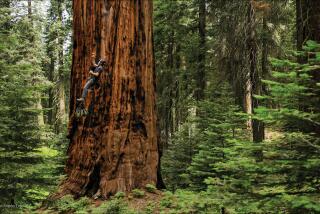Good Deeds; Good Intentions
- Share via
Re “Experiment in Creating Permanent Open Space Takes Shape in Ojai,” Ventura County Perspective, Nov. 21.
In this article about the Ojai Valley Land Conservancy, the use of the word “permanent” in the headline powerfully demonstrates the difference between good deeds and good intentions.
The Land Conservancy’s purchase of the Palmer property is an example of the former, where people recognized that the surest way to ensure the long-term protection of an area is to buy it. Everything in our system of law and government supports this approach to environmental protection, because private property rights are at the center of our Constitution.
The Save Open Space and Agricultural Resources (SOAR) initiative, on the other hand, is an example of environmental good intentions. Like most good intentions, it will have unintended consequences. As The Times points out, the Land Conservancy’s action is likely to outlast protection ostensibly provided by SOAR simply because the Palmer property is off the market: No one can develop it because no one can sell it to developers.
By contrast, SOAR buys nothing but tells people how they must use their land: Farmers must use their land for farming in perpetuity. To rezone property, one must seek the approval of the voters. In other words, SOAR does not stop development but rather establishes another step in the development process. Instead of buying council members, developers now will aim their slick campaigns directly at the voters, promising jobs, schools and parks.
In the end, all of that open space the well-intentioned folks at SOAR thought they were saving will end up looking like another development in Orange County.
The folks in Ojai have a lesson for all of us living in Ventura County: If we really want to protect our open space, we had better get out there and start buying it.
WILLIAM P. McGOWAN
Ventura
More to Read
Sign up for Essential California
The most important California stories and recommendations in your inbox every morning.
You may occasionally receive promotional content from the Los Angeles Times.













